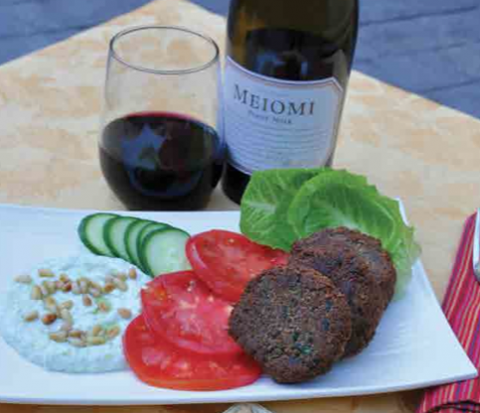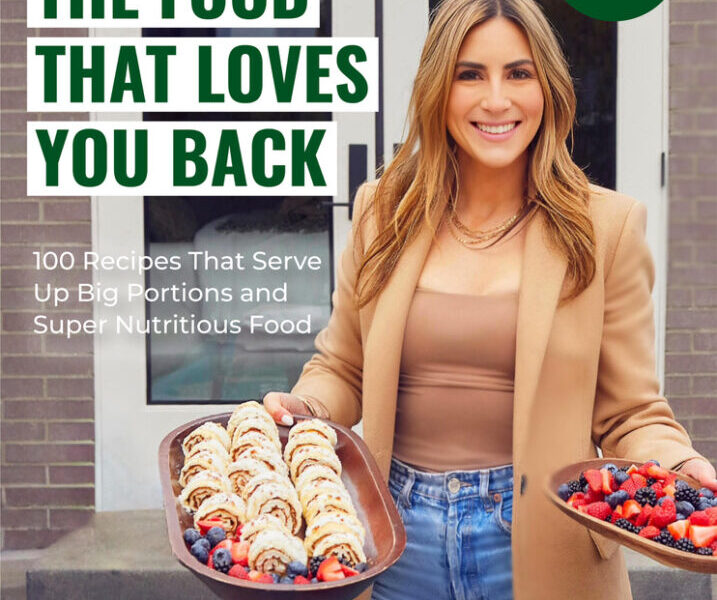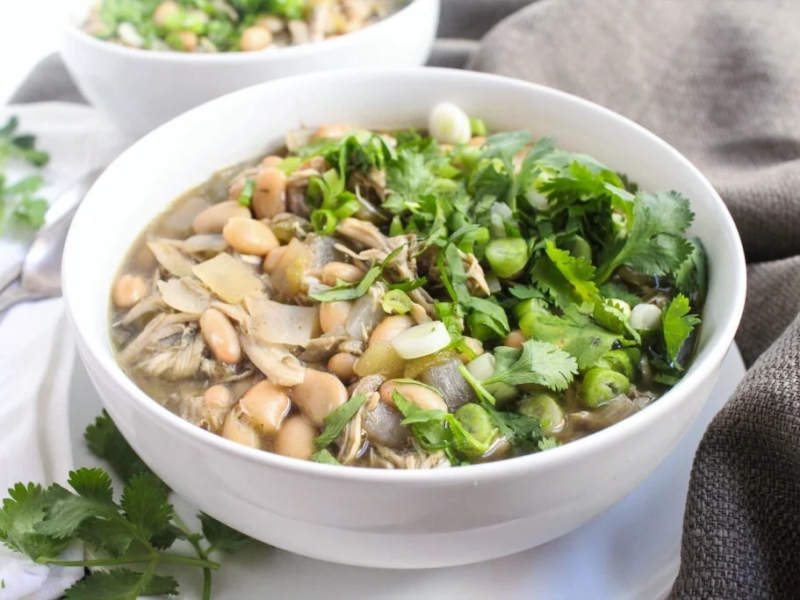As women we undergo changes throughout our lives that require moderation in how and what we choose to eat. While weight management and overall health remain ideal goals, diet and nutrition during the childbearing years differs greatly from the needs of women approaching menopause and beyond. With that in mind, I believe food should remain one of life’s greatest pleasures. That said, the choices about what we eat certainly affect our overall well-being.
We are inundated with articles about what we are supposed to eat. There’s low-fat, no fat, good fat and bad fat; low-carb, low calorie and low-sodium; high protein, high fiber, organic, cage free, free range and grass fed. We are advised to avoid GMO, BPA and anything with a high glycemic index. The good news is we are still being encouraged to enjoy that glass of red wine to take advantage of its antioxidant properties … Whew!
The mind is boggled by the choices we face at the grocery store. Adhering to all of these guidelines may prove overwhelming. I prefer to follow the advice of the late, great Julia Child, who loved to cook as well as eat great food and still managed to live to the ripe age of 91: “Everything in moderation … including moderation.”
My recipe for homemade falafel, a popular Israeli street food, is a combination of garbanzo beans, edamame and walnuts. Garbanzo beans (like most legumes) have long been valued for their fiber content. The edamame are immature soybeans and can be found shelled or in the pod in the frozen food section of most any grocery store. They are low in fat and calories and high in protein, fiber and almost every other essential vitamin and mineral. Walnuts contain the plant-based omega-3 fat alpha-linolenic acid (ALA), an anti-inflammatory that may prevent the formation of blood clots.
After adding sautéed onions, garlic and spices, the mixture is formed into patties or balls and shallow-fried in grape seed oil. Grape seed oil has a high smoking point, making it ideal for frying. It can also boost the health of the heart and the cardiovascular system by lowering the level of bad LDL cholesterol while also increasing the level of good HDL cholesterol.
The falafel are served with a cool and creamy cucumber dip made with strained Greek yogurt, garlic, lemon and olive oil. Serve these tasty fritters with fresh crispy vegetables or stuffed into a pita pocket for a substantial and healthy lunch or dinner.
Garbanzo Bean, Walnut & Edamame Falafel
3 cups garbanzo beans (about 3⁄4 pound dried)
1 cup shelled edamame
1⁄2 cup toasted walnuts
2 teaspoons kosher salt
1⁄2 teaspoon cayenne pepper
(or more if you like spicy)
2 teaspoons ground cumin
1 teaspoon ground coriander
1 teaspoon ground fenugreek (optional, see note)
Juice of half lemon
1⁄4 cup chopped Italian parsley
1 medium onion, coarsely chopped 3 cloves garlic, chopped
2 tablespoons all purpose flour
3-4 cups grape seed oil for frying
Soak dried garbanzo beans in cold water overnight. Measure three cups of garbanzo beans into the bowl of a food processor fitted with a steel blade. Add edamame, walnuts, spices, lemon juice and parsley. Use about a tablespoon of the grape seed oil to sauté onions and garlic on medium high for about 3-5 minutes until softened and beginning to brown. Add 2 tablespoons flour to the onions and garlic and toss to coat. Continue to cook for a couple of minutes more. Add onion mixture to food processor and process until garbanzo beans are chopped and mixture forms a paste. If mixture seems too dry, you can add a bit of water. Mixture should hold together when shaped into patties. Heat oil to 350 degrees (I like to use an electric skillet for this). Form mixture into patties and fry on both sides until GBD (golden brown and delicious!). Serve warm with cucumber dip.
Note: Yemenite Jews following the interpretation of Rabbi Salomon Isaacides, Rashi, believe fenugreek, which they call hilbeh, hilba, helba, or halba, is the Talmudic Rubia. They use it to produce a sauce also called hilbeh, reminiscent of curry. It is consumed daily and ceremoniously during the meal of the first and/or second night of Rosh Hashanah.
Yogurt Cucumber Dip
1 pint Greek yogurt (full fat, 2% or fat free … your choice)
1 English cucumber with skin, chopped 3 cloves garlic, crushed
Juice and zest of 1 lemon Kosher salt to taste
Line a sieve with a double layer of cheesecloth or tea towel and place over a medium bowl. Place yogurt into sieve and allow it to drain for at least 4-5 hours or overnight in the refrigerator. Mixture should be the consistency of cream cheese. Place thickened yogurt, cucumber, garlic and lemon in the bowl of food processor. Blend until smooth. Add salt to taste.
Lisa Glickman is a private chef and teacher who lives in Portland. She has made TV appearances on COTV in Central Oregon and appeared on the Cooking Channel’s “The Perfect Three.” She can be reached at [email protected].






